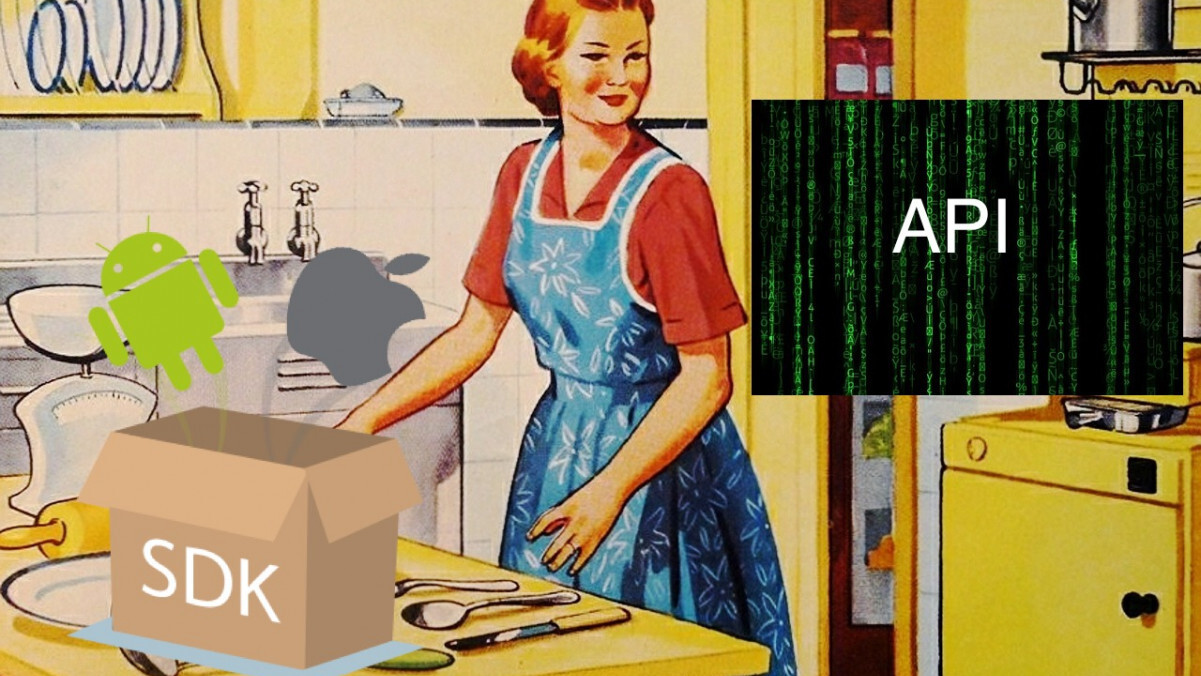
I’ve been a developer for about eight years now, but I was already faced with the challenge of choosing between using an SDK vs. API well within the first year of working as a dev. After achieving beginner proficiency in web applications, I was tasked with integrating points of interest data for a tourism website to help people discover and explore new places.
I started out by delving into the seemingly daunting task of planning for API integration by reading the developer documentation. While doing so, I came across an option for using an SDK instead and it quickly changed my perception of software integration from being scary to being fun. After spending a few hours on integrating the SDK into the backend code, I was ready to explore the possibilities of what I could do with all the data at my disposal.
As any developer can tell you, building something that stands out in today’s world takes a lot of expertise, ingenuity, and time (and money – but that’s a topic for another post). Thankfully, there was an option of using an SDK to help make the process easier for me.
The decision to use an SDK vs API can impact the end product’s user experience, reliability, and timeline. SDKs and APIs both provide the ability to add innovative features into pre-existing apps. But how do you choose between an SDK and an API? Let’s explore.
Choosing the right option for your needs
SDKs and APIs are used to integrate important features like security and communications into web and mobile apps without having to reinvent the wheel. Each provides similar benefits but each also has distinct differences. So, what are those differences? Think of it this way. An SDK is like a box of cake mix. It has pre-built functionality that makes baking a cake faster and easier. You don’t necessarily even have to know much about, or have any experience, baking.
An API on the other hand is like a recipe used to bake a cake. It’s a set of instructions with room to be creative. You can get to the same end result, but without previous knowledge it’s much more difficult and may have some unintended consequences. Additionally, you can get cake mix geared towards cupcakes, pancakes, or even in different flavors; the same way each SDK is a software toolset specially crafted for a given language or platform to interact with the underlying services.
Though there are appropriate uses for each, there are specific benefits of an SDK over an API. I’ll discuss a few in this article, including easier integration, faster time to market, built-in security, and cost savings.
Easier integration
With pre-built functionality, integrating an SDK into an app could not be easier. SDKs can simplify standard processes such as creating authorization signatures or parsing SMS messages in native language or platform, which greatly reduces integration complexity. Developers don’t need to have the expertise on the SDKs topic to be able to use it, as most SDKs come with the programming tools, documentation and sample code to ensure they can be seamlessly plugged in to apps.
APIs on the other hand require in depth knowledge of the product being integrated in addition to development of the software for integrating the API. Thus, adding on research and development complexity.
Faster time to market
SDKs enable developers to launch their apps faster without having to spend the time and money on developing complex infrastructures or processes. SDKs are generally all in one solutions — they do not require integration with other components or significant design that can slow down the development process. SDKs will also incorporate best practices and should fully utilize the underlying API.
The creator of the SDK has already done the heavy lifting, developers can simply reap the benefits. Whereas, API integration can demand expertise in several areas of functionality based on the technology in use. Additionally, the process can include dealing with issues during the integration and performing A/B tests to figure out the best practices.
Stronger security
Few things are important today than security, especially as apps and services become more and more interconnected. This is where SDKs can really shine. Security systems can be extremely complex, requiring massive teams of experts to develop, update and test. SDKs can make it possible for businesses to add important security easily, whether it’s used to block fraud or enforcing security requirements like storing sensitive information.
One of the largely overseen advantage of SDKs is the ability to have deep integration with a native platform such as Android or iOS to provide end to end integration of services for a more secure overall solution, which can be easy to miss when using APIs. On the flip side, it’s important to keep in mind that while SDKs can be more secure, its best to ensure you are using stable SDKs actively being developed from creators that you trust to be as secure as you need them to be.
Cost savings
Cost will always be one of the most important factors when building a new platform. SDKs can help here as well. Between reduced development cycle time and the ability to leverage expertise and fully-realized coding, integrating SDKs instead of APIs can save your business a huge chunk of cash.
Reliability
In today’s ever changing landscape of apps, users expect new functionality fairly regularly. With new features comes the potential for bugs in the code. Since SDKs have been tested thoroughly before launch and also verified by other customers for their stability, the customers can be assured that SDKs are reliable and ready for production use in their apps. APIs on the contrary are integrated using software written from scratch and warrant quality tests before being put in front of customers.
Conclusion — know what you need
This is not to undermine the advantage of API integration to deliver custom solutions in situations when performance or customization is key. There are definitely certain areas in which APIs can shine. At the end of the day though, SDKs are meant to provide developers with the expertise and solutions they need, and to get them up and running quickly and easily.
They come premade with lots of exciting benefits that save businesses time and money, and they can enable developers to stay up to date with the latest features and best practices without having to do the research themselves. Companies simply add in new enhancements to their SDKs and can send the updates around to those using the SDK.
Bottom line, if you are building a new app and want to separate yourself from the crowded mobile landscape — but don’t have the resources to build everything yourself — it just might be time to look to SDKs to give you the features you need to grow and excite your users.
Get the TNW newsletter
Get the most important tech news in your inbox each week.




